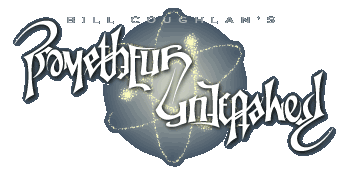Spam, Glurge, and Other Potholes on the Information Superhighway
I don’t think I’m going out on much of a limb here by saying I hate spam. Not the canned-meat variety (though thankfully, I haven’t had to taste it since college), but the sort that clogs my e-mail inbox to the point where I can’t find the real messages until they’ve been languishing in there for days.
It probably doesn’t help that my work e-mail address has remained unchanged for several years; it’s had plenty of time to be picked up by every spam list out there. Thankfully, my company’s IT department recently implemented a filtering program that, at last check, had caught more than 1,500 of my messages in the past month alone. It’s at the point where I don’t even check it anymore — not that I trust the system to be perfect (since a number of spam messages get through, I have to assume the occasional legitimate message gets caught), but it’s no longer worth my time to sort through even the subject lines. I’m willing to accept the loss.
Spam tends to come from two quarters. The first is the commercial mass-mailers. There’s not too much you can do about them, other than to try your best to filter it out. They’ll never stop, no matter what legal obstacles are thrown in their way (not that I think we should abandon legal avenues — at the least, it may result in some marginal recovery of damages). As the soulless scum on the bottom of the world’s boot, they have no concept of ethical, moral, or legal behavior. There are few people I would have no moral qualms about shooting on sight, but spammers fall most assuredly into that category.
The second is the forwarded message from well-meaning folks who are just too ignorant to know better. Not that they’re stupid, by any means — just innocent in the ways of the ’net-connected world. Everything from jokes, to urban legends, to virus warnings, to feel-good too-sappy-for-even-Hallmark chain letters, it just keeps coming. I’ve developed a reputation in my office as a sort of debunker of these e-mails, and over time, my coworkers have (for the most part) learned to pass things my way before accepting them as gospel. Usually, a quick check of the Urban Legends Reference Pages, Internet Scambusters™, or the Department of Energy’s own Hoaxbusters page will reveal the truth, at least about the stories and warnings (the jokes and sappy messages are a little harder to combat). Even easier is just understanding the simple rule that anything that says, “Forward this to everyone in your address book,” is a hoax. Anything.
I’ve chosen to go a step further by adopting the Boulder Pledge, originally crafted by Roger Ebert at the Conference on World Affairs at the University of Colorado (and first printed in the now-defunct Yahoo! Internet Life); I reprint it below. It’s just one small step, but by adhering to its principles absolutely — no exceptions whatsoever — I believe I’m doing at least something to stem the rising tide of “junk” e-mail, commercial or otherwise.
“Under no circumstances will I ever purchase anything offered to me as the result of an unsolicited email message. Nor will I forward chain letters, petitions, mass mailings, or virus warnings to large numbers of others. This is my contribution to the survival of the online community.”
Learn it. Live it.


0 Comments:
Post a Comment
Links to this post:
Create a Link
<< Home